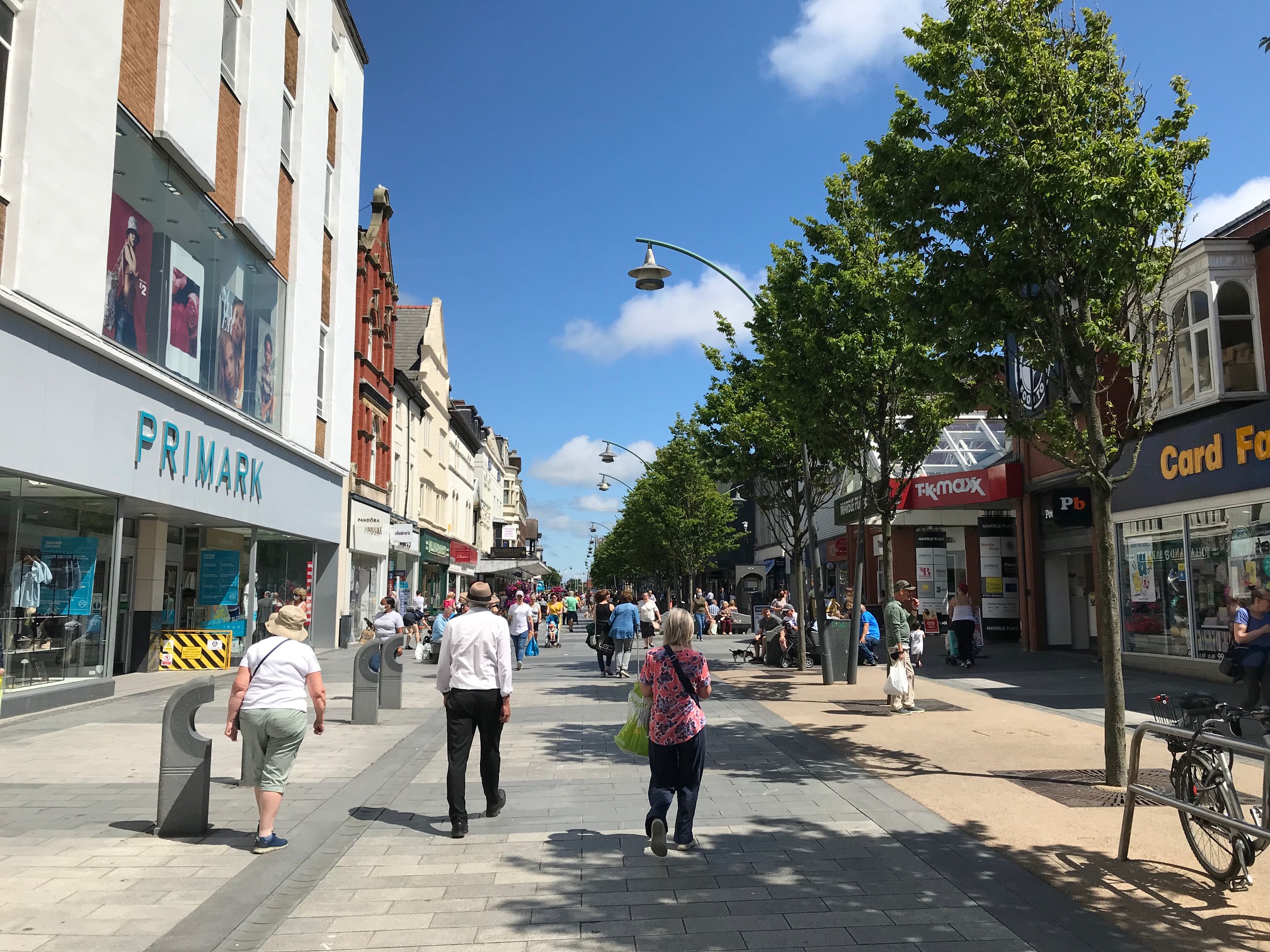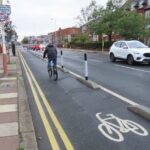People in Southport must wear face masks in shops and on public transport from Tuesday (30th November).
Hospitality venues however will be exempt from the new rules.
On Saturday, the Prime Minister confirmed new temporary and precautionary measures following the emergence of the Omicron variant in the UK.
Secondary schools will bring back masks in communal areas from Monday, telling close contacts to self-isolate for ten days.
Heads and teaching unions in England were told today that new guidance was being issued advising a return to masks in corridors for children in Year 7 and above, as well as on school and public transport.
The new restrictions, which include strict travel rules, will be reviewed in three weeks, at the start of the school holidays.
Most recent figures show Sefton has a high Covid rate of 400.9 cases per 100,000 people, with 1,106 cases in the seven days to 23 November 2021, a fall of 28 (-2.5%).
Up to and including 27 November 2021, 80.9% of eligible people in Sefton have had their first Covid-19 vaccination, with 75% for their second vaccination.
The Government insists that Covid vaccines remain our best line of defence.
NHS chiefs are asking everyone eligible to take up either a Covid vaccine, or a Covid booster.
Experts remain confident that our current vaccines will provide protection against the new Omicron variant, but the extent of this continues to be investigated.
Over 16 million people have already come forward for their booster jabs.
Six million booster jabs will be available in England alone over the next three weeks, and the Health Secretary has asked the JCVI to consider rapidly extending boosters, as well as reducing the gap between the second dose and booster.
Early indications suggest the Omicron variant may be more transmissible than the Delta variant and current vaccines may be less effective against it. A rapid rise in infections in South Africa has been attributed to the spread of this new variant of Covid-19.
International efforts are now underway to gather as much data and information as possible about this new variant, with more detailed information expected over the next three weeks.
Travel restrictions have already been implemented to slow the spread of the variant and protect UK borders. From 4am on Sunday, 28th November South Africa, Botswana, Lesostho, Eswatini, Zimbabwe and Namibia, Malawi, Mozambique, Zambia, and Angola were added to the UK’s travel red list.
Sajid Javid, the health secretary, said people would have a “great Christmas” and should plan as normal.
The Joint Committee on Vaccination and Immunisation (JCVI) has been asked to consider extending booster jabs to those aged 18 to 39. At present only over-40s are eligible for the third shot, which in the case of the Pfizer-BioNTech vaccine is 95.6 per cent effective against Covid-19. The JCVI has been asked to consider reducing the gap between second and third jabs from six months to five. Professor Anthony Harden, deputy chairman of the JCVI, told under-40s to expect their boosters earlier.
Last week Margaret Jones, Sefton Council’s Director of Public Health, said: ‘While first and second vaccinations are still providing people with good levels of protection from the virus, a booster dose can give people longer term protection against getting seriously ill from COVID-19. “If it’s been five months since you had your second jab, you can now pre-book to have your booster in another month’s time.”
Young people aged 16 and 17 can also now book their second vaccine, at least 12 weeks after their first. In addition, children aged between 12 and 15 can have their COVID-19 jab to help protect them and their loved ones. Most aged between 12 and 15 will be offered one jab, those with a condition that means they’re at high risk from COVID-19 or who live with someone who is more likely to get infections, will be offered two.
Dr Rob Caudwell, local GP and chair of NHS Southport and Formby Clinical Commissioning Group (CCG), said: “It’s amazing that so many people have had their COVID-19 vaccine, and we’re keen to see that success continue across all groups and for those who are eligible for the flu vaccine. Research has shown that you’re more likely to be seriously ill if you get flu and COVID-19 together at the same time. So, it’s really important you don’t delay and get your jabs as soon as they’re offered to you.”
For more information on flu, who can have the jab free on the NHS and where you can get the flu jab visit: https://www.nhs.uk/conditions/flu
More information about the COVID-19 booster programme and how to get your COVID-19 vaccine is available on www.nhs.uk/coronavirus-vaccination or by calling 119.
Do you have a story for Stand Up For Southport? Please message Andrew Brown via Facebook here or email me at: mediaandrewbrown@gmail.com






